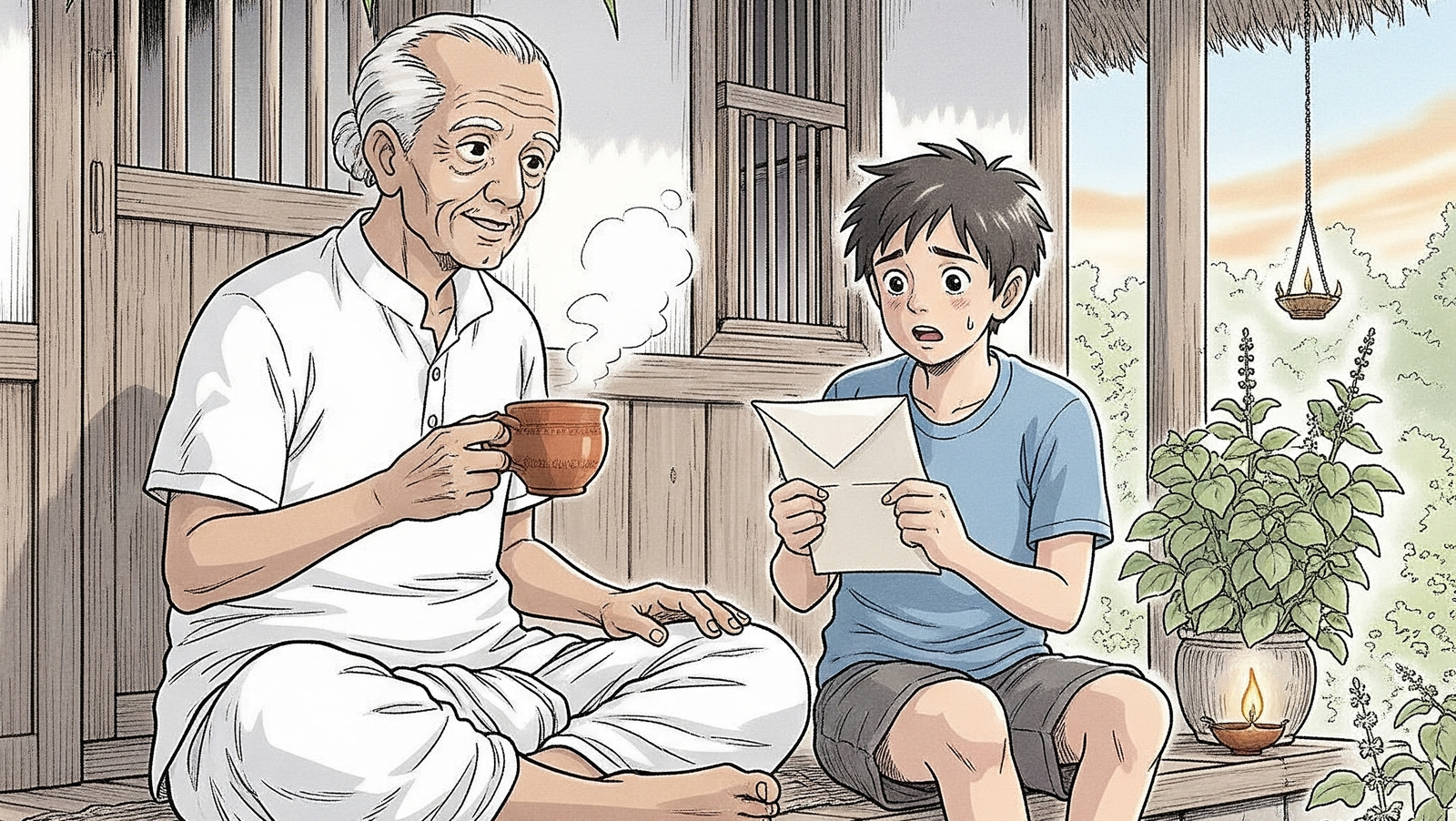In the heart of rural Bengal, nestled between mustard fields and mango groves, lived an old man named Kishore Babu. He was a quiet soul, once a respected schoolteacher, now retired, spending his days sipping tea under the neem tree beside his home. People called him Mastermoshai, though he hadn’t held chalk in years.
Every morning, Kishore Babu would sweep the courtyard, light a diya at the Tulsi altar, and open an old leather-bound notebook. He would write poems, small reflections, memories. Then he’d tear out the page, fold it, and place it in a rusted tin box under his bed.
One day, his grandson Aarav came to visit during summer holidays—a restless, city-bred boy who always had earbuds in and a phone in hand. He thought the village was boring, slow, and old.
“Dadu, why do you keep writing if no one reads it?” Aarav asked one evening, annoyed that the internet had stopped working again.
Kishore Babu smiled and passed him a cup of steaming cha.
“I write for the sky, for the wind, for myself.”
“But what’s the point if it just stays locked in that old box?”
The old man chuckled. “Not everything needs to be posted online to exist, Aarav.”
Aarav rolled his eyes and walked off, muttering, “Old people and their drama.”
That night, the power went out. No fan, no phone, no light—just darkness and a chorus of crickets. Aarav, irritated, lit a kerosene lamp and shuffled into Dadu’s room. The box under the bed was half open.
Curious, he pulled it out and unfolded one of the notes.
“I used to chase applause, but silence taught me peace.”
Another read:
“She passed away on a rainy morning. Still, I lay two cups out during tea. The habit of love is hard to break.”
Aarav kept reading. Letter after letter. Small truths. Lost sorrows. Quiet joys. Things Dadu never said aloud.
And something shifted.
The next morning, Aarav sat beside Kishore Babu on the mud verandah. No phone, no earbuds.
“Dadu… can I write one today?”
Kishore Babu simply handed him a pen and a page.
That moment, Aarav understood something his fast-moving world had forgotten.
That truth doesn’t need a stage.
That emotion doesn’t need to be loud.
That some things are written not to be seen—but to be felt.
That was his realisation.

